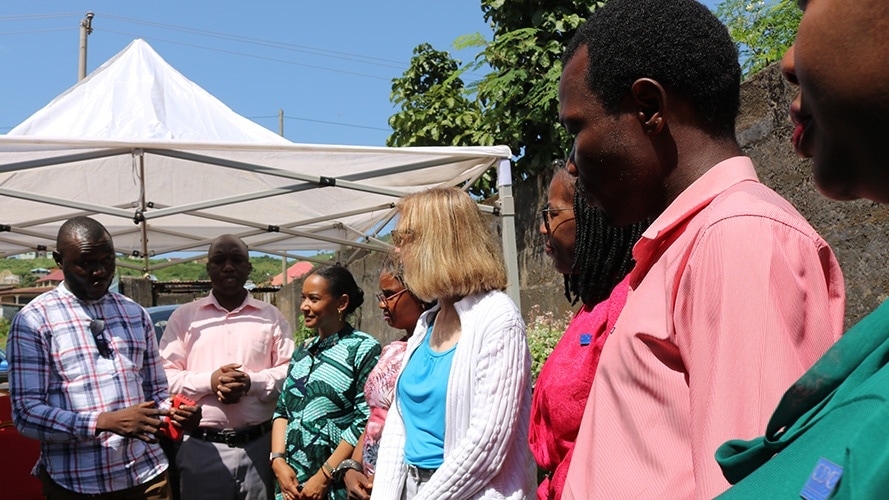Key points
With U.S. CDC support, health officials in Sierra Leone launched a vaccination campaign to bring COVID-19 and human papillomavirus (HPV) vaccines to eligible students in thousands of schools across the country. Health officials provided trustworthy information to parents and students. The campaign resulted in 178,000 girls who received the HPV vaccine, and more than 400,000 teens who were vaccinated against COVID-19.
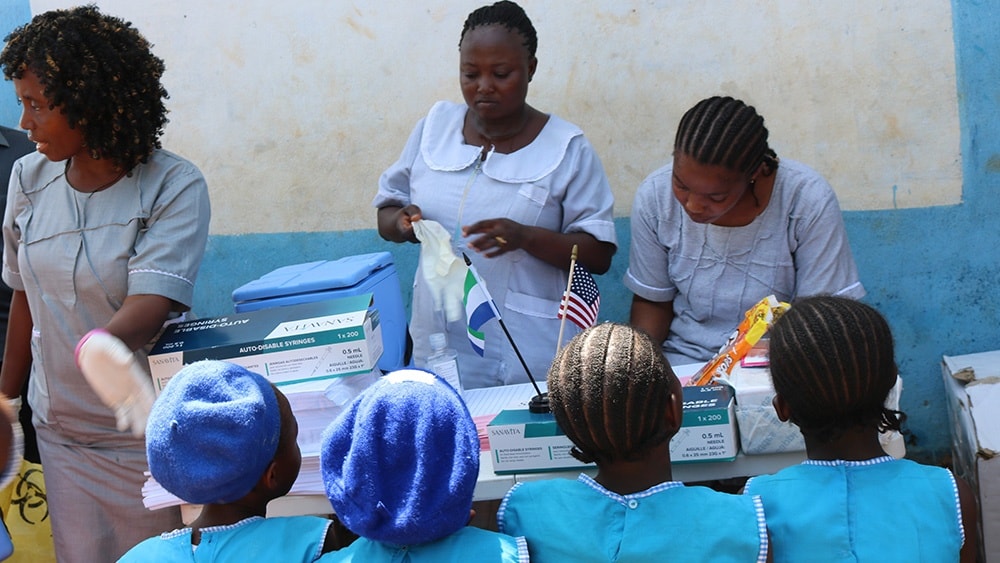
Lifesaving COVID-19 vaccines
Throughout the pandemic, U.S. CDC and the U.S. Agency for International Development assisted Sierra Leone with the rollout of lifesaving COVID-19 vaccines. The U.S. government donated more COVID-19 vaccines to Sierra Leone than any other country, totaling over 1.6 million vaccine doses received.
Extensive planning, training, data management, and monitoring of current vaccination efforts began at the start of the pandemic. As COVID-19 vaccines were developed and tested, U.S. CDC provided technical assistance to plan and monitor COVID-19 vaccination campaigns.
In addition to the U.S. CDC, the World Health Organization, United Nations International Children's Emergency Fund, ICAP at Columbia University, the Clinton Health Access Initiative, and The Task Force for Global Health were already working on vaccination programs in this country.
By 2022, all these groups coordinated their COVID-19 vaccination efforts to create the One Country Plan, an initiative to streamline the national COVID-19 vaccination work and get as many people in Sierra Leone vaccinated as possible.
The main goal was to get COVID-19 vaccines to people who were not vaccinated. U.S. CDC's technical support was designed to help Sierra Leone meet the WHO's ambitious target to vaccinate 70% of the eligible population against COVID-19.
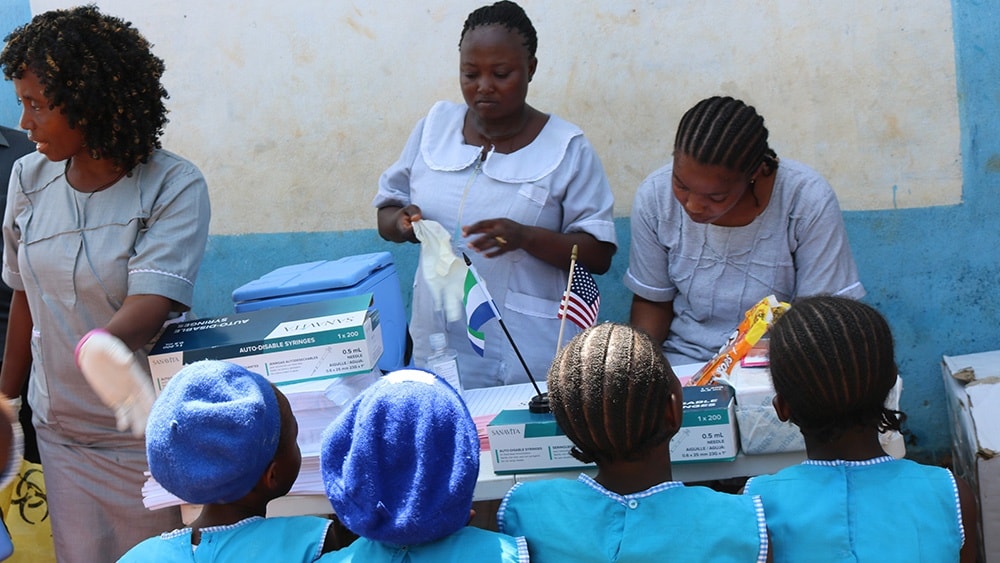
Expanding HPV vaccines
COVID-19 vaccination efforts overlapped with the introduction of another vaccine that can prevent future illness. In October 2022, the Government of Sierra Leone added the human papillomavirus (HPV) vaccine to the routine immunization schedule.
U.S. CDC based in Sierra Leone provided technical guidance on the rollout of the HPV vaccine, which prevents cervical cancer. This is the second most common cancer among women and number one cancer killer among 14 to 44-year-olds in Sierra Leone.
The introduction of the HPV vaccine is one of the government's key strategies towards eliminating cervical cancer in the country.
Sierra Leone set a goal of getting nearly 154,000 10-year-old girls vaccinated against HPV. The government wants to vaccinate girls long before they are potentially exposed to cancer-causing infections.
Campaign
The decision was made to introduce the HPV vaccine at routine COVID-19 vaccination clinics. A five-day campaign was launched on October 2022.
The COVID-19 and HPV vaccination campaign aimed to vaccinate all eligible children and young adults. The vaccination efforts were so successful that more individuals than expected took advantage of the opportunity. By the end of the campaign, over 178,000 10-year-old girls were vaccinated against HPV. Over 414,000 people aged 12-years and older received the COVID-19 vaccine across 16 districts.
After the success of this vaccination campaign, COVID-19 vaccines were offered once or twice a month. With these efforts, Sierra Leone reached their goal of vaccinating 70% of the eligible population by the end of the year. Since then, Sierra Leone has vaccinated more people and exceeded the global goal set by WHO.
The campaign to introduce the HPV vaccine was also a success. HPV vaccines are now offered on a routine basis with the other childhood vaccines.
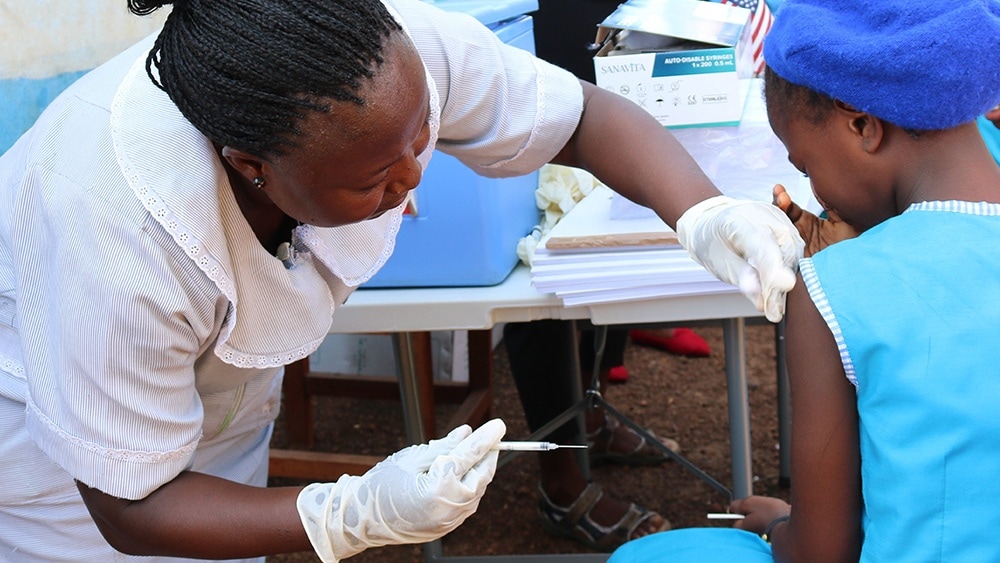
Impact
The success of the CDC-supported vaccine integration campaign was largely due to coordination, efficient planning, and collaboration. Health officials also worked on communication by the government education and health ministries, local leaders, and community influencers (Paramount Chiefs, opinion leaders, religious leaders). This gave each community ownership and contributed to the success of vaccination efforts.
With U.S. CDC support and technical advice, health officials had tools to increase the number of people who were vaccinated by countering misinformation related to vaccines and explaining how they help protect people and prevent illnesses.
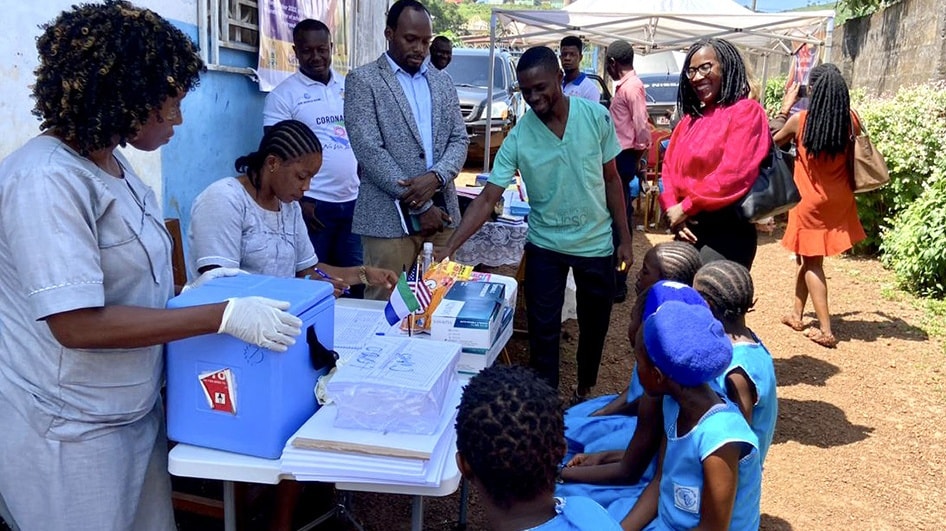
As of January 1, 2023, more than 74% of all individuals aged 12 and older in Sierra Leone were fully vaccinated against COVID-19. The growing vaccination coverage in the country is an example of how this partnership produces meaningful results.
COVID-19 vaccines are effective at protecting people from getting seriously ill, being hospitalized, and dying. Getting children vaccinated against HPV is the best way to protect them against certain types of cancer later in life. This combined vaccination campaign provides a powerful defense against both COVID-19 and cervical cancer.
The success of Sierra Leone's unique approach to rolling out the HPV and COVID-19 vaccines at the same time and then integrating them into the routine immunization system is one which may be modeled in other countries.
